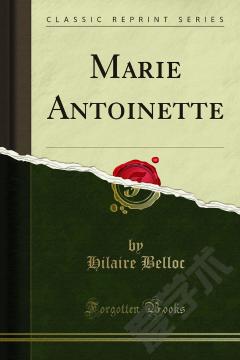Marie Antoinette
The eighteenth century, which had lost the appetite for tragedy and almost the comprehension of it, was granted, before it closed, the most perfect subject of tragedy which history affords.The Queen of France whose end is but an episode in the story of the Revolution stands apart in this: that while all around her were achieved the principal miracles of the human will, she alone suffered, by an unique exception, a fixed destiny against which the will seemed powerless. In person she was not considerable, in temperament not distinguished; but her fate was enormous.It is profitable, therefore, to abandon for a moment the contemplation of those great men who re-created in Europe the well-ordered State, and to admire the exact convergence of such accidents as drew around Marie Antoinette an increasing pressure of doom. These accidents united at last: they drove her with a precision that was more than human, right to her predestined end.In all the extensive record of her actions there is nothing beyond the ordinary kind. She was petulant or gay, impulsive or collected, according to the mood of the moment: acting in everything as a woman of her temper — red-headed, intelligent and arduous — will always do: she was moved by changing circumstance to this or that as many millions of her sort had been moved before her.
{{comment.content}}








 京公网安备 11010802027623号
京公网安备 11010802027623号